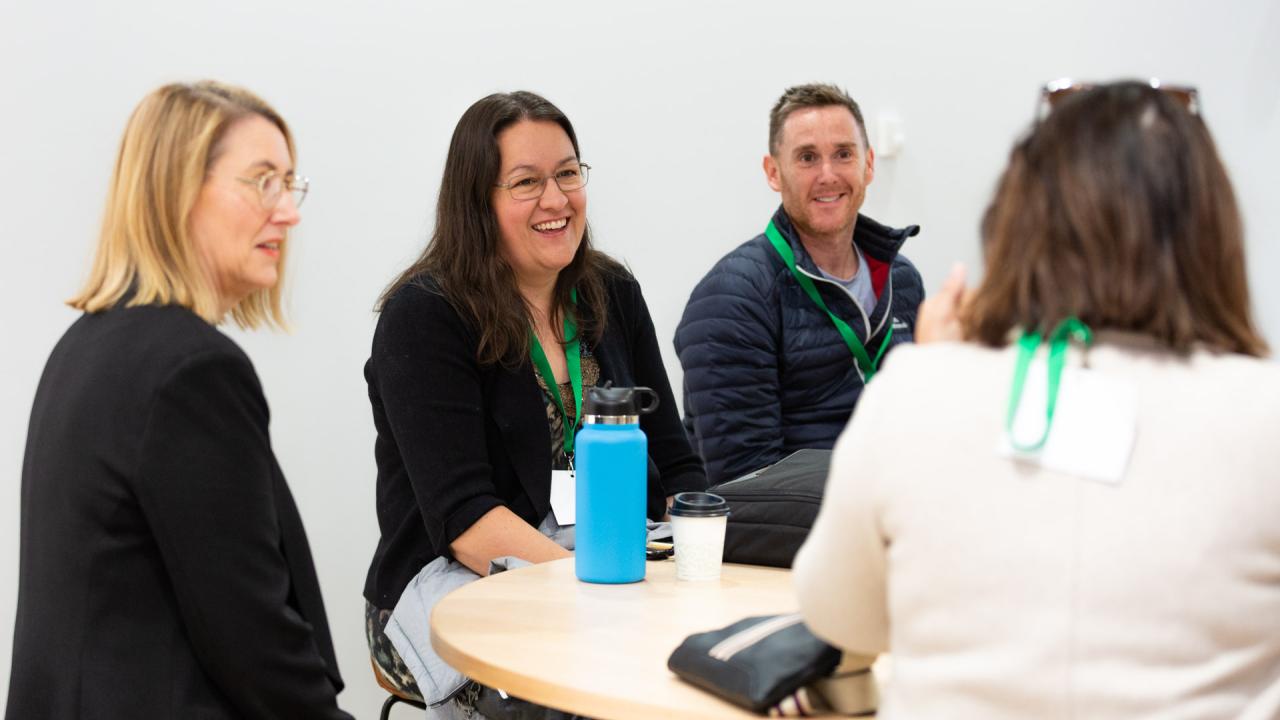Collaborative Complex Problem Solving

Overview
This program provides principals, assistant principals and their teams with a research-based, flexible model of problem solving, teaching them:
- what makes a problem complex
- how complex problems can be solved through a systematic, iterative 5 stage process
- how to collaborate with others in ways that progress the problem while building trust with those involved.
It is important to understand the distinction between complex and less complex problems. Less complex problems are those that can be solved by existing routines. Problems are complex when there is considerable uncertainty about the path to solving them or where routine fixes have proved ineffective.
Capability in complex problem solving is key to leadership effectiveness. Leaders cannot achieve their improvement goals if they cannot solve the problems that stand in the way of success (Mumford et al., 2000; Patuawa et al., 2022).
Participant feedback
'The workshop provided our team with rare, protected time to work together on meaningful challenges.
A highlight was the opportunity to network with other schools, openly discussing shared challenges and learning from one another.
The evidence-based framework provided a clear structure for approaching real-world problems, and the practical nature of the work meant we could immediately see its relevance and application in our setting.
This experience has already had a positive impact on our school and leadership team.'
- Naomi McBride, Principal, The Royal Children’s Hospital School
Audience
Roles
Designed for school principals or assistant principals, who have the option to invite up to 3 participants from their leadership teams such as:
- leading teachers
- learning specialists.
Department of Education corporate staff can attend if joining a school leadership team.
School sectors
This program is available to the following school sectors:
- Victorian government
- Catholic
- independent.
Some content may contain information aligned with Department of Education priorities or initiatives.
Facilitator
Dr Jacqui Patuawa holds a national portfolio leadership position and is a senior education consultant at Evaluation Associates. She, amongst her many responsibilities, leads the global Leading by Learning program. Jacqui brings years of experience in schooling improvement programs. Her expertise in collaborative complex problem solving is based on her practical work with middle leaders, principals, principal mentors, system leaders and her recently completed doctoral research.
Dr Jacqui Patuawa will deliver these sessions alongside Academy facilitators.
Structure of program
Over 4 weeks, you will engage in:
- self-directed learning tasks (4.5 hours)
- 1 pre-workshop webinar (1.5 hours)
- 1 face-to-face workshop (8 hours)
Self-directed learning tasks
Self-directed learning activities include reading resources and completing tasks that will support your understanding of the key frameworks and concepts and prepare you to successfully engage in the workshop.
Pre-workshop webinar
The pre-workshop webinar will introduce the Academy Leadership Excellence Framework (ALEF) and explain the Problem Identification Protocol and school data that you will use during the workshop.
Full day workshop
The full-day face-to-face workshop will utilise the collaborative complex problem solving model to:
- delve into the intricacies of problem nature and complexity, offering foundational knowledge that underpins the stages of the complex problem-solving process.
- transition from theory to participants' own practice, encouraging participants to apply the model to their own professional challenges.
- focus on introspective learning, prompting participants to use explicit standards of practice to reflect on and develop their competencies in navigating the stages.
Learning outcomes
By successfully engaging in this program, you will be able to:
- demonstrate understanding of the nature of problems and what makes them complex
- accurately explain the 5 stages of collaborative complex problem solving
- apply the model to an important problem in your area of responsibility
- accurately self-assess your strengths and weaknesses in applying each of the 5 stages of collaborative complex problem solving
- demonstrate effective collaboration and, if needed, plan for further learning of the requisite interpersonal skills.
Fees and financial support
| Government school | Non-government school | |
|---|---|---|
| Fee per participant | Fully subsidised | $150 (excl. GST) |
Department of Education fully subsidises Victorian government schools.





